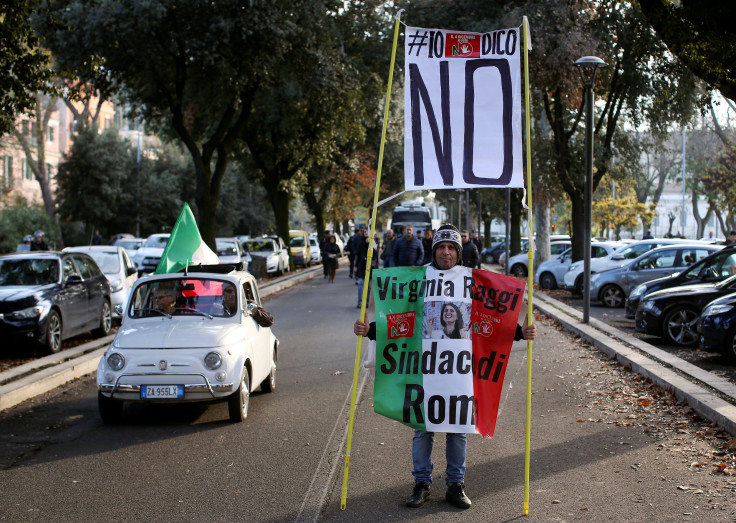Italian Referendum 2016 Explained: Polls, Issues, Odds, What’s At Stake As Matteo Renzi’s Future Hangs In The Balance

After the election of Donald Trump and the Brexit vote to leave the European Union, Italy could become the stage for the latest populist uprising against the established political order. While Sunday’s Italian referendum may not be as eye-catching as the two other headline-grabbing examples, it could well have a sizable impact on not just Italy’s political future but the future of the Eurozone and thus the global economy.
Italians will be heading to the polls to vote on whether to amend the Italian Constitution. Prime Minister Matteo Renzi has staked his political future on the outcome of the vote, vowing to resign if his proposals do not win a majority support. In power since 2014, Renzi, of the center-left Democratic Party, wants to streamline the legislative system, reducing the number of senators and reducing the power of the Senate.
The exact changes are detailed and complex, but they would move Italy away from a perfect bicameral system, in which the Chamber of Deputies and the upper Senate are roughly equal. Renzi has argued that such a move is necessary in order for him to get on with the task of reviving the country’s struggling economy.
However, the proposals are highly controversial. They would change a constitution drawn up in 1947 in the wake of the rule of fascist dictator Benito Mussolini. Many are wary of any changes that help concentrate political power in the hands of the executive branch.
The reforms passed through parliament in April, but failed to get the two-thirds support required to avoid them having to go before a referendum. Opinion polls suggest Renzi is struggling to make his case to the people.
In the final polls before an official blackout on Nov. 18, the “No” camp was in front with 53.5 percent support. The betting markets also believe a “No” vote is likely, giving it 3/10 odds of coming out on top, equal to 77 percent. The “Yes” vote was at 9/4, equivalent to 31 percent.
Everything has still been up for grabs in the final two weeks of the campaign, with 20 percent of people still indicating they were undecided. Yet the situation was not looking good for Renzi, or potentially the eurozone. Even before the vote, markets have displayed their jitteriness about the outcome. The euro was at one point down as much as 0.3 percent against the dollar on Friday, while Europe’s FTSEurofirst 300 index dropped 0.16 percent.
A “No” vote would fuel further instability. If Renzi resigns, President Sergio Mattarella could appoint another prime minister. In that event, any appointee would likely struggle to win parliamentary support, meaning early elections in 2017 could well be called.
If that does happen, then it could bring to power Italy’s own anti-establishment movement. The Five Star Movement (MS5) has been the most vocal advocate for a “No” vote in the referendum and a victory for its cause on Sunday would likely signal a fresh spike in its popularity. MS5 led Renzi’s Democratic Party in the polls this summer and in the most recent polls was trailing by only a point at around 30 percent.
Led by comedian Beppe Grillo, the Five Star Movement has vowed that if it wins power it will hold a referendum on whether Italy should leave the eurozone. With Italy housing the eurozone’s third-largest economy, there are fears that the whole currency would then collapse.
Although a strong majority of Italians currently indicate they are in favor of remaining part of the euro, nothing will be taken for granted after Britain’s shock vote to leave the EU in June.
© Copyright IBTimes 2025. All rights reserved.





















